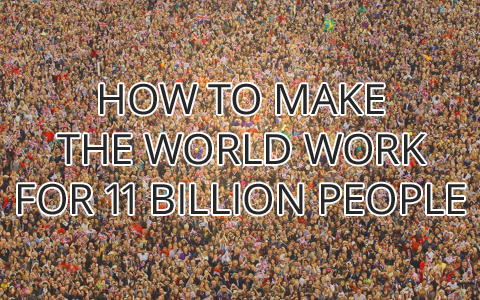 |
 |
|
July 27, 2020 HOW TO MAKE THE WORLD WORK FOR 11 BILLION PEOPLE Talk by Paul Hanley As part of the Big Ideas series, on Friday, June 19, Paul Hanley, a longtime environmental columnist with the Saskatoon StarPhoenix, gave a Zoom talk on how to make the world work for 11 billion people based on his book, Eleven. Attended by around 50 participants, in a fascinating and thoughtful presentation supported by high quality slides and even a short video, Paul showed us two sides of the human coin, that of disintegration and integration and how these can be transformative.  Initially, Paul gave a broad overview of the negative elements that are afflicting the world at the moment: environmental disasters, pandemics, loss of biodiversity, financial crises, race and gender inequalities, and reliance on meat production with livestock outnumbering humans 3 to 1, to name a few. Paul covered a number of fascinating statistics, such as the fact that where once it took 10,000 generations to reach a population of one billion by 1400 CE, it now takes less than a generation to add another billion. As a result, our ecological footprint is causing us to overshoot the earth’s capacity by 60 percent. Much of our wealth, (or in this case, illth), is the result of unfettered and unsustainable materialistic growth that is causing more problems than it is solving. He then made the argument that there are three protagonists required to transform the world into a more sustainable, equitable and unified form. The first is the individual, whose positive actions and awareness of his or her surroundings bring about changes both environmentally, socially and spiritually. As Bahá’u’lláh, the founder of the Bahá’í Faith has revealed: Let your vision be world embracing. The second are communities, where civil societies are having a greater share in bringing neighborhoods and cities towards greater sustainability and turning consumers into prosumers, who are directly involved in renewable energy and human-powered food production. Currently, there are 800 million urban farmers/gardeners in the world. The third protagonists are institutions – like the United Nations, or forward-thinking governments such as in Bhutan, where they focus on gross national happiness, or New Zealand, whose economic model is based on the wellbeing of its citizens. |
|
|